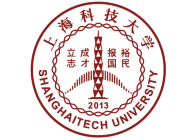
Credit: Ignatiev / iStock / Getty Images Plus
AI has been driving smart biomedical instrumentation, intelligent medicine, and medical imaging, the three leading research directions at the School of Biomedical Engineering (the BME School) of ShanghaiTech University.
Launched in 2020, and backed by the Shanghai Municipal Government and Chinese Academy of Sciences, the BME school has grown rapidly. It has a strong translational research focus to improve clinical workflow, medical care, and patient outcomes.
Its founding dean, Dinggang Shen, was among the first to apply deep learning in medical imaging. He has led various international projects in the field, and is now directing a cross-disciplinary research hub. The BME school aims to attract talent by offering principal investigators an independent research team to become academic leaders in the field, accelerate academia-industry collaboration, and nurture young medical and engineering graduates.
Qian Wang, founder of the Medical Image Computing (MIC) lab at the BME School, is a specialist in intelligent medicine. For cervical smear screening, he recently proposed a more effective and robust three-stage computer-aided scanning system to suppress errors in abnormal cell detection during whole-slide imaging, reducing pathologists’ workload.
“Our strong collaborative environment unites specialists from basic research to clinical validation. I have been working with optical imaging and metabolomics experts as it is hard to achieve any practically feasible solution via one laboratory,” says Wang.
The school’s incoming executive dean, Peng Hu, emphasizes the value of technological solutions that put clinical needs first. Having applied a machine-learning framework called generative adversarial network (GAN) to magnetic resonance imaging (MRI), he recently published results showing enhanced image quality and faster imaging speed based on data of patients with congenital heart disease. The study demonstrated accelerated scan time and improved respiratory motion compensation, tackling a long-standing challenge associated with MRI, where diagnostic image quality is otherwise affected by the motion of breathing.
“AI is set to gradually overtake previous generations of MRI reconstruction and data acquisition methods, which were only developed after the early 2000s,” says Hu. “Meanwhile, new projects building on our domain knowledge in MRI will also drive AI development.”
To transform the future of health care, the BME School is offering new recruits an internationally recognized tenure-track system, generous start-up funds, university-wide support programmes, and attractive compensation packages.


